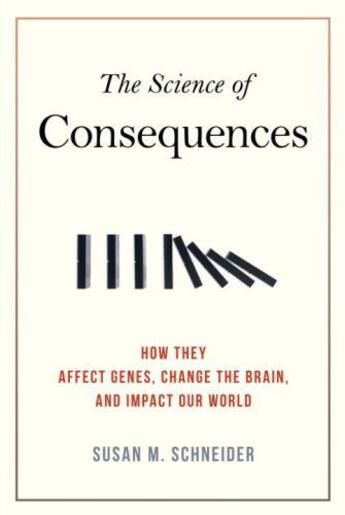-
Nombre de pages : (-)
-
Collection :
(-)
-
Genre :
(-)
-
Thème :
Non attribué
-
Prix littéraire(s) :
(-)
Résumé:
Featuring illustrative human, pet, and wild-animal anecdotes, this book is a unique and fascinating introduction to a science that is truly epic in scope. Children quickly learn that actions have consequences. This elementary lesson is repeated again and again throughout adulthood as we adjust... Voir plus
Featuring illustrative human, pet, and wild-animal anecdotes, this book is a unique and fascinating introduction to a science that is truly epic in scope. Children quickly learn that actions have consequences. This elementary lesson is repeated again and again throughout adulthood as we adjust our behaviors according to the reactions they produce in the social and natural environment. Now, an internationally recognized biopsychologist, tells the story of how something so deceptively simple can help make sense of so much. Despite their variety, consequences appear to follow a common set of scientific principles and share some similar effects in the brain (specifically, in the so-called pleasure centers). Based on these principles, Schneider and other scientists have been able to create mathematical models of certain behaviors. And they have demonstrated that learning from consequences predictably activates genes and restructures the neural configuration of the brain-in humans as well as in animals. Consequences are an integral part of the nature-and-nurture system. The knowledge gained from this newly expanded science has many applications, as the author shows in examples from the home, the hospital, the classroom, and the boardroom. The science of consequences helps fight prejudice, free addicts of their destructive habits, and treat depression. It enriches the lives of pets and zoo animals. It also sheds light on our biggest societal challenges, where we must choose between short-term and long-term consequences.
Donner votre avis















